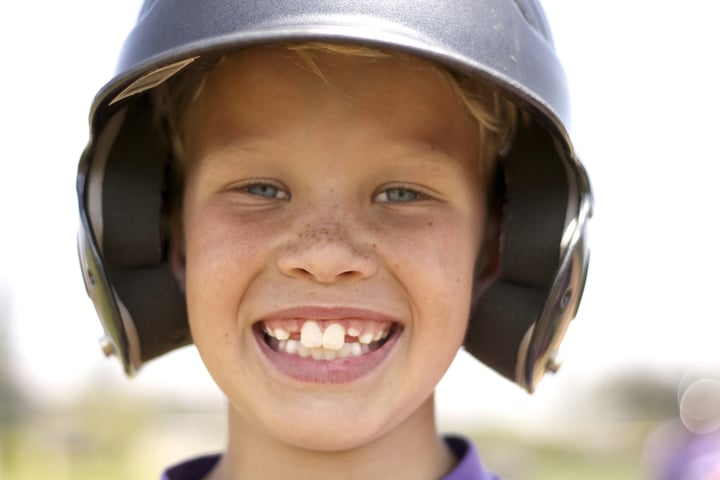
What is the difference between an ‘overbite’ and an ‘underbite’?
Ideally when the teeth are in biting position, the upper front teeth should close over the lower teeth. This is called the ‘overbite’, which is a proper dental term.
An ‘underbite’ is actually a layman’s term. It refers to the opposite of the overbite where the lower teeth are situated in front of the upper teeth. The proper dental term for an ‘underbite’ is called a ‘crossbite’.
What causes ‘buck teeth’?
There are three main causes of ‘buck teeth’:
- A genetic predisposition – usually one or both parents
- Habits – these include thumb or finger sucking, nail biting or even tongue thrusts
- Trauma – this includes a fall or hit which has knocked the teeth, and no treatment was rendered at the time of the incident.
When do ‘buck teeth’ tend to become evident?
It depends upon the cause. If it is a genetic trait it can become evident very early – even as early as a toddler. Usually, however, the condition becomes evident in the mixed dentition period (between 8-13 years old). If the cause is habitual, the teeth displacement will become evident over time. If there has been trauma it will become evident immediately after the incident.
Are there health risks associated?
There are no physical health risks, but there can be social and emotional impact. These include the patient feeling aesthetically compromised, speech issues including lisping, spitting saliva when talking and even eating certain foods can be impacted as the front teeth can not incise.
What can be done about realigning buck teeth and at what age?
Orthodontic treatment (e.g. braces, plates, aligners) would be recommended. The start of treatment will be case dependent. Some children may need to start as young at 6 years old, and others will commence treatment in the teens. There is no hard and fast rule in terms of intervention.
How long would typical treatment last?
Again, this is case dependent on the severity of each case differs.
Does treatment tend to be effective?
Yes! Treatment is effective and will usually rectify the issue. If you have any concerns about your own teeth, or your child’s, make an appointment and we can answer any questions.

Dr Christina Liew is an Australian trained dentist based at Smilefocus.
Dr Liew has been caring for children and adults alike at Smilefocus for over 15 years.
Please call 6834 0877 to make an appointment.
